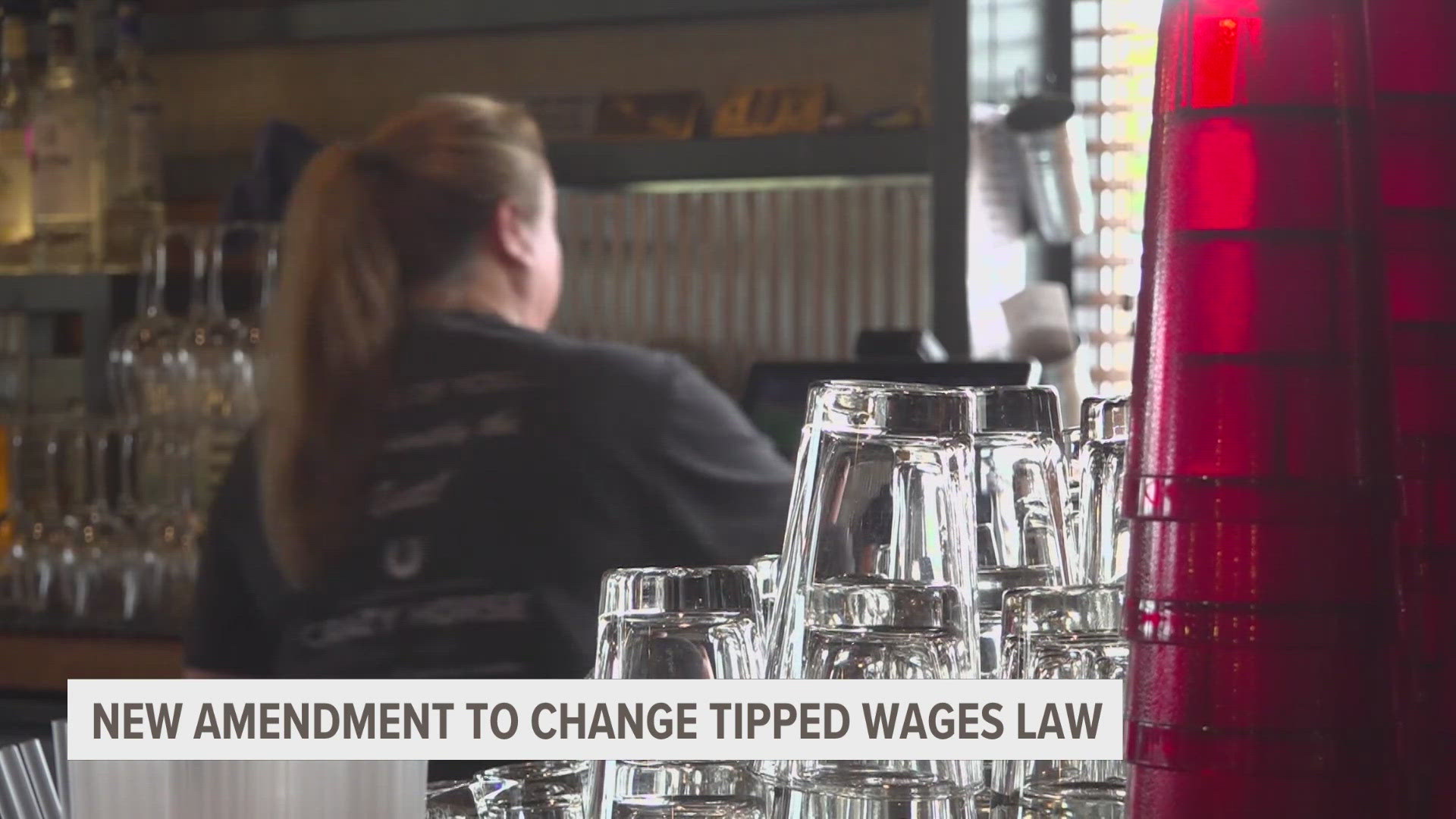MICHIGAN, USA — There are new efforts to stop the increase in hourly wages for workers in the service industry, scheduled to take effect early next year. A proposal introduced in the state house on Thursday would amend Michigan's tip credit schedule.
If passed, the amendment would make the raise of servers' hourly pay rate to Michigan's minimum wage over several years a gradual change instead of a sudden one. The minimum wage in Michigan is currently $10.33 an hour.
Currently, base pay for servers is 38% of that $10.33 an hour, which comes out to $3.93 an hour. For servers like Angelo Hawkins, tips make up the rest.
Hawkins, who works at Buffalo Wild Wings, told 13 ON YOUR SIDE that this new law would raise menu prices and ultimately reduce their tips, which they aren't happy about.
"If I wanted to make $15 an hour, I would go work at McDonald's and go in the drive-thru window or go in their kitchen, but that's not what I like doing," said Hawkins.
Restaurant workers and owners across the state will soon be impacted by Michigan's "tip credit" scheduled to go into effect on Feb. 21 of 2025. It would raise servers' hourly pay to eventually meet Michigan's minimum wage by 2030. Those in favor of the changes say eliminating tipped wages will offer more stable earnings to tipped workers in Michigan's hospitality industry.
However, Hawkins said one of his biggest fears is that if the minimum wage increases, the number of tips he'll receive will decrease because of rising menu prices.
"If our minimum wage goes up, restaurants are going to have to increase their prices. As I stated before, we didn't ask for this. If this was the case, you should have put it on a voting ballot, and we should have voted for it instead of it being forced on to us," said Hawkins.
After years of legal challenges, the Michigan Supreme Court ruled to raise Michigan's minimum wage each year to reach $15 an hour by 2030, gradually eliminating the "tip credit" over the next five years.
Barb Bechtel is the co-owner of Barbed Wire Café in Plainwell. She thinks many restaurants won't be able to survive.
"If the menu prices go up, people are less likely to tip 20%, 30%, 40% and if that happens, nobody's going to waitress. The forecast now that 25% to 30% will shut down on February 21 and it depends on how many people last," said Bechtel.
The Government Affairs Manager from the Grand Rapids Chamber, Jacqui Dolce, said there are things that could be done to reverse the new changes. That includes a bi-partisan amendment just introduced in the state house.
"We've been meeting with lawmakers, and we appreciate their openness and willingness to make changes. Our goal has been to work with legislators to create some practical solutions to this legislation. That is our Avenue, that is our vehicle for making change," said Dolce.

